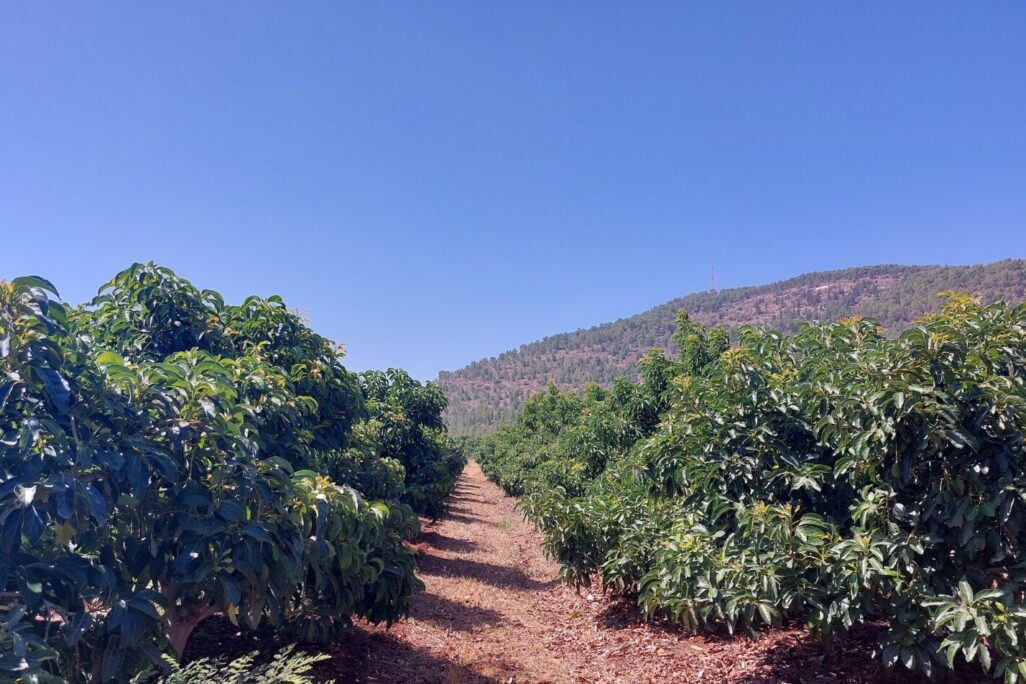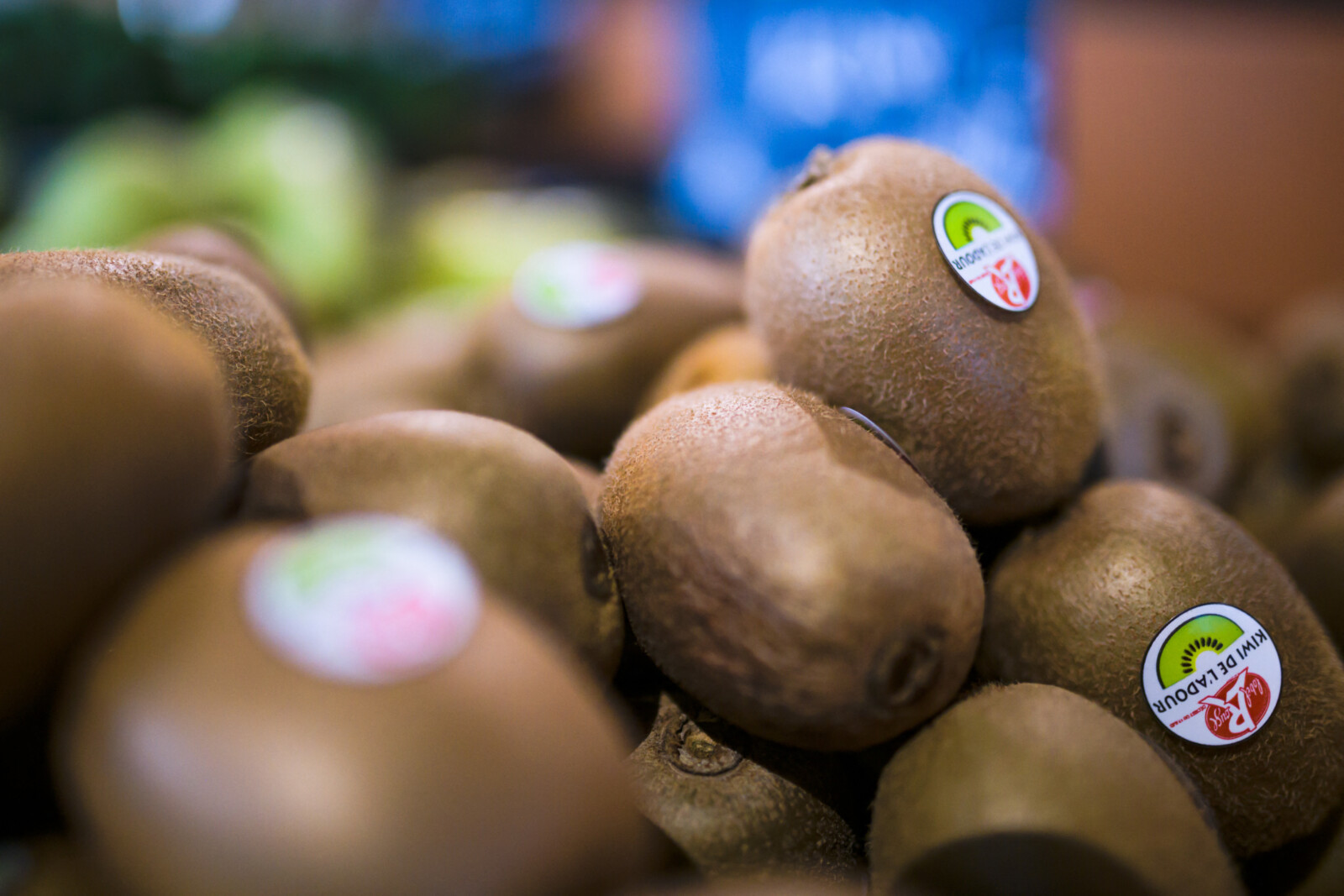
Approximately 26% of northern Israel’s fruit orchards have been declared closed for harvest due to ongoing attacks along the country’s borders with Lebanon and Syria. The affected area includes 3,757 dunams (928 acres) out of a total of 14,230 dunams (3,516 acres) from which fruit cannot be harvested, consisting mainly of apple and kiwi orchards. This according to data from Kanat – the Fund for Natural Damage Insurance in Agriculture, which was involved in documenting the current war's impact on agriculture.
The ongoing threat posed by the Lebanese terror organization Hezbollah has already resulted in the evacuation of dozens of communities along Israel’s northern border, the destruction of residences, public buildings and infrastructure and serious damage to farmers’ ability to work according to the regular agricultural cycle. The fruit orchards of the town of Metula and kibbutzim such as Yiftah, Malkia, and Bar’am are in some cases the only thing standing between Israeli homes and areas controlled by Hezbollah terrorists, marking a de facto border. Northern communities typically supply about 40% of the deciduous tree fruit in Israel.
According to data from the Plants Production and Marketing Board and the Israel Fruit Growers Association, about 1,000 dunams (247 acres) out of 25,000 dunams (6178 acres) of apple orchards have been left unharvested. The encouraging news for consumers is that this is a small proportion that amounts to about 5,000 metric tons of apples out of the 90,000 that were expected to be harvested this season. An additional 2,700 metric tons of kiwi out of an expected total of 9,000 were also left in the fields.
Most of this season's apple and kiwi crop has already been harvested and transferred to refrigeration, so there are not expected to be shortages on the shelves or price increases. The shortage will be completely made up for by imports, and farmers will be compensated for the direct damages of being unable to harvest these fruits.
According to Asaf Shamir, Vice President of Evaluation and Claims for Kanat, the situation is even worse in the avocado orchards, where about 58% of orchards cannot be harvested (3,560 dunams out of 6,110), and in the banana orchards, where about 78% of the fields cannot be picked (1635 dunams out of 2,089).
"So far we have recorded damage to about five thousand acres of fruit orchards in the conflict zone in the north," said Shamir, "of which 40% have been declared unharvestable areas." Shamir presented the data at a conference for growers of deciduous tree fruits in mountainous areas, which was held as an initiative of Northern Research and Development at the Migal Research Institute and the Ministry of Agriculture’s Extension Service.

In recent months, Kanat has been documenting indirect damages to agriculture in communities at a distance of up to 9 kilometers (5.6 miles) from the border in the north and up to 20 kilometers (12.4 miles) in the south. The compensation for indirect damages is determined via a non-binding route (called the pink route), which is intended to shorten the procedure for receiving compensation. In accordance with this route, Kanat's determinations will use property tax to determine the extent of the damage to farmers. Compensation will be paid based on a predetermined rate per dunam.
"So far we have documented about 300 growers who have chosen to proceed with the pink route in the northern sector," Shamir pointed out. "The extent of the area reaches about seven thousand acres, including about five thousand acres of orchards, 40% of which have been declared as unharvestable."
As far as summer fruits are concerned, many questions remain. Farmers are blocked from reaching thousands of acres of fruit orchards that require ongoing work. In the peach, nectarine, apricot, and cherry orchards located in the threatened areas, it is impossible to carry out pruning, application of pest control sprays, and other seasonal work. The lack of clarity regarding the future of the fighting in the north, which many fear could develop into an all-out war with Hezbollah, also affects farmers’ ability to anticipate the scope of the harvest and prices in supply chains and markets this summer.
Yaron Belhassan, CEO of the Israel Fruit Growers Association: "There has been a serious blow to farmers’ ability to work on the northern border. They cannot come and take care of their orchards, as part of the necessary preparations for 2024, and could not pick all of the fruit in their orchards in the areas that were declared closed for military operations in the north and the south.
"These are huge losses, and we demand that the Ministry of Finance reach agreements with the farmers' organizations so that the farmers will receive full compensation for all the damages they suffered due to the fighting, as was the case in the Second Lebanon War. A lack of compensation will lead to the collapse of entire farms. The government must address the issue of agriculture and compensation for farmers and prioritize the restoration of the country and food security for the residents of Israel."
This article was translated from Hebrew by Tzivia Gross.






